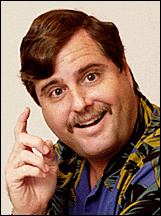


Honolulu Lite
Today is the Fourth of July, a day in which Americans celebrate freedom, Mom and apple pie. But a quick check of the historical record shows it also is a day punctuated with long, boring speeches, heavy drinking and the firing of dangerous weapons and fireworks, with the predictable deaths, injuries and property damage. July Fourth always
caused fireworksJuly 4 was first celebrated on July 25, 1776, in Williamsburg, Va. which isn't as curious as it sounds. The Declaration of Independence was adopted by the Continental Congress on July 4, 1776, and there was plenty of partying at the time. It took a few weeks for it all to sink in and everyone to sober up enough to throw another celebration. The Williamsburg gig set the tone for future celebrations with plenty of drinking and "the firing of cannon and musketry."
On the first anniversary of the Declaration of Independence, things really got going in Philadelphia. It was party, party, party with ships firing off cannon, parades and many toasts "followed by a discharge of artillery and small arms."
If you think complaints about fireworks are a recent phenomenon, you don't know your history.
Historian James R. Heintze notes: "The history of July Fourth celebrations are replete with examples of events marred by injuries and fatalities as the result of the handling of fireworks, guns and other explosives. It was typical for the celebration to continue, no matter what tragic incident might have occurred."
Here's a sample of the July 4 mayhem Heintze catalogued:
1786: An errant artillery shell causes the Beaufort, N.C., court house to burn down during a celebration.You'd think miners with dynamite wouldn't need fireworks. But you get the idea: The Fourth and Fireworks go together like George and Washington.1843: A church burns to the ground in Poughkeepsie, N.Y., as a result of a firecracker "carelessly thrown by a boy."
1845: In Washington D.C., 12 rockets are accidentally fired into the crowd, killing two men and injuring several others. In Ithaca, N.Y., three men are killed by an exploding cannon.
1857: In Placerville, Calif., Chris Hauson's left arm and right hand were blown off by the premature explosion of a cannon, from which a salute was being fired.
1864: William Seward, riding in a carriage in Washington, D.C., narrowly avoids serious injury when a rocket, set off by a boy, strikes him above the eye.
1884: In Swan City, Colo., miners blow up the town's post office because they are not supplied with fireworks.
In Honolulu, July Fourth was celebrated in 1814 with artillery salutes from ships in the harbor. Today, the air will be punctuated with the sound of firecrackers, a small echo of the explosions that have marked this date over centuries.
Each pop you hear today, while annoying to many, should remind you of the actual guns that were fired to win our freedom so long ago. Just remember, the war's over. We won. Be careful out there.
Alo-Ha! Friday compiles odd bits of news from Hawaii
and the world to get your weekend off to an entertaining start.
Charles Memminger also writes Honolulu Lite Mondays,
Wednesdays and Sundays. Send ideas to him at the
Honolulu Star-Bulletin, 500 Ala Moana Blvd., Suite 7-210,
Honolulu 96813, phone 235-6490 or e-mail cmemminger@starbulletin.com.
The Honolulu Lite online archive is at:
https://archives.starbulletin.com/lite